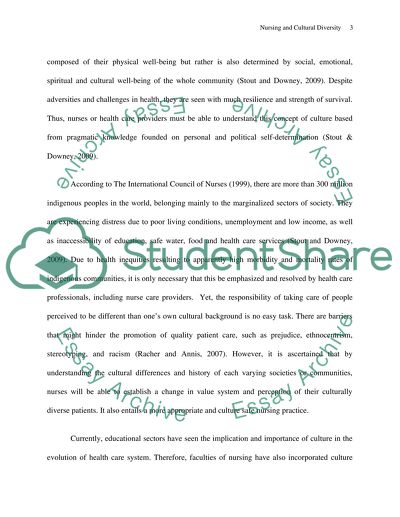Cite this document
(“Nursing and Cultural Diversity Essay Example | Topics and Well Written Essays - 2000 words”, n.d.)
Nursing and Cultural Diversity Essay Example | Topics and Well Written Essays - 2000 words. Retrieved from https://studentshare.org/health-sciences-medicine/1518449-nursing-and-cultural-diversity
Nursing and Cultural Diversity Essay Example | Topics and Well Written Essays - 2000 words. Retrieved from https://studentshare.org/health-sciences-medicine/1518449-nursing-and-cultural-diversity
(Nursing and Cultural Diversity Essay Example | Topics and Well Written Essays - 2000 Words)
Nursing and Cultural Diversity Essay Example | Topics and Well Written Essays - 2000 Words. https://studentshare.org/health-sciences-medicine/1518449-nursing-and-cultural-diversity.
Nursing and Cultural Diversity Essay Example | Topics and Well Written Essays - 2000 Words. https://studentshare.org/health-sciences-medicine/1518449-nursing-and-cultural-diversity.
“Nursing and Cultural Diversity Essay Example | Topics and Well Written Essays - 2000 Words”, n.d. https://studentshare.org/health-sciences-medicine/1518449-nursing-and-cultural-diversity.


